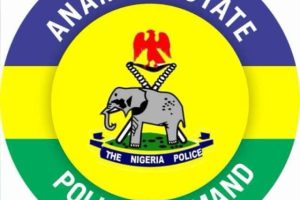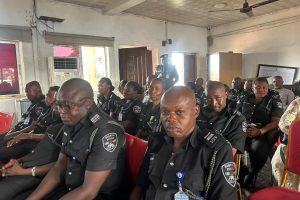It was just after midnight in Lagos, on a horse-racing track turned square, when Nigeria’s new white and green flag was hoisted officially for the first time, replacing Britain’s Union Jack.
Several hours later, on the morning of October 1, 1960, a representative of Queen Elizabeth II handed Nigeria’s constitution over to Abubakar Tafawa Balewa, the country’s new prime minister.
“It was celebrations all over the place,” said Tanko Yakasi, 93, who attended a party that afternoon hosted by the soon-to-be-former governor-general, James Wilson Robertson.
“There were high expectations and the [Nigerian] political class really believed that they would be able to change the fortune of the country for the better.”
Nigeria became a republic three years later, with Nnamdi Azikiwe assuming the role of the president.
Large oil reserves discovered in 1956 had brought hopes of wealth and fortune to many.
“I remember my grandparents saying how life was easy back then,” 30-year-old Hamzat Lawal told AFP news agency. “They didn’t have to deal with today’s insecurity; they had jobs; they had a decent lifestyle.”
But the honeymoon did not last long. Six years after independence, Balewa was assassinated in a coup and shortly after, Nigeria plunged into a three-year civil war that killed more than a million people.
After the war ended, 30 years of coups and military dictatorships followed.
For Yakasi, who worked for Shehu Shagari, Nigeria’s first leader democratically elected in 1979, those decades of army rule had a crushing effect.
“There were personal differences among the military, and they engaged in coups and counter-coups. All this has taken a toll on the progress and development of the country, economically and otherwise.”
Civilian rule returned to Nigeria in 1999, ushering a renewed sense of hope that culminated with the first peaceful transition of power when Muhammadu Buhari, a former military head of state, became president in 2015.
News
Nigerian children attend independence day celebrations in this 2013 photo [File: Pius Utomi Ekpei/AFP]
Corruption, poverty and unrest
As the country became the world’s eighth biggest crude oil exporter, the political elite was accused of enriching itself massively from oil revenues.
Looking back since independence, history professor Olutayo Adesina, 46, paints a mixed picture with few successes and many failures.
Africa’s most populous nation has become a continental cultural powerhouse, boasting the world’s second most productive film industry and globally celebrated music scene.
But the vast country that spreads from the Atlantic Ocean to the semi-arid Sahel had in 2018 the highest rate of extreme poverty globally, according to the World Poverty Clock, created by the Vienna-based charity World Data Lab.
For Adesina and many others, politics and corruption are largely to blame.
“Ninety-nine percent of Nigerian politicians do not get into politics because they have something to offer to the people, but to butter their bread; for their own self-interest,” said the university lecturer.
The country’s attorney general has estimated that corrupt officials in cahoots with multinational firms have looted $400bn over the years.
“For me, it’s frustrating, and a lot of people my age and younger are frustrated,” said Lawal, who founded an anti-corruption organisation in Nigeria called Follow the Money.
President Buhari, 77, was first elected on promises to crack down on corruption but there have been few significant successes.
In Transparency International’s latest corruption perception index, Nigeria fell to 146 out of 180, its lowest ever ranking.
“The unfortunate situation in Nigeria today is that in politics people come to power in order to enrich themselves, not develop the country. This is our problem,” said Yakasi.
December 14, 2025









Add Comment